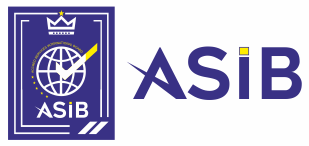ISO/IEC 17020 Accreditation
- Home
- ISO/IEC 17020
ISO/IEC 17020 Accreditation
Conformity assessment - Requirements for the operation of various types of bodies performing inspection
ISO/IEC 17020 accreditation is a globally recognized standard for the competence of inspection bodies. It sets out the criteria for the operation of inspection bodies and ensures that they are impartial and competent in carrying out their inspection activities. This accreditation is important for organizations that perform inspections in various industries, including manufacturing, construction, and healthcare.
It specifies requirements for the competence, impartiality, and consistent operation of inspection bodies, ensuring their activities are reliable and unbiased. Inspection bodies covered include those examining materials, products, installations, processes, services, or personnel for compliance with standards, regulations, or specifications. This standard supports global trade, safety, and quality assurance by enabling mutual recognition of inspection results.
The standard applies to all types of inspection bodies (Type A: independent third-party; Type B: in-house within a larger entity; Type C: providing second- or third-party inspections with safeguards for impartiality) and covers any stage of inspection, from design review to final acceptance. It emphasizes competence in inspection methods, impartiality to avoid conflicts, and consistency in processes but does not specify technical inspection criteria
Benefits of ISO/IEC 17020 Accreditation
Obtaining ISO/IEC 17020 accreditation helps organizations demonstrate their commitment to quality and professionalism. It provides assurance to clients that the inspection body operates in accordance with internationally recognized standards and practices. Secondly, ISO/IEC 17020 accreditation can open up new business opportunities and help organizations expand their customer base. Many clients look for inspection bodies that are accredited, as it gives them confidence in the quality of the services provided.
- Enhanced Credibility and Customer Confidence: Accreditation signals that the inspection body operates with proven competence and reliability, boosting trust in its services, reports, and overall quality management. This reassures clients of the impartiality and accuracy of inspections, leading to stronger relationships and repeat business.
- International Recognition and Market Access: As a globally accepted standard, ISO/IEC 17020 certification facilitates mutual recognition of inspection reports across borders, making it easier to enter new markets and comply with international regulations. This is particularly valuable in regulated sectors like construction and non-destructive testing (NDE), where accredited reports are readily accepted worldwide.
- Improved Operational Quality and Consistency: The standard enforces robust processes for training inspectors, managing quality systems, and ensuring impartiality, resulting in more reliable and high-quality inspection services. It emphasizes the inspector as the primary resource, with requirements for ongoing professional development to maintain expertise.
- Demonstrated Commitment to Impartiality and Integrity: By adhering to strict guidelines on conflicts of interest and ethical practices, certified bodies showcase operational integrity, which is essential for gaining approval from regulators, peers, and stakeholders in competitive industries.
- Economic and Sector-Specific Advantages: In applications like agriculture or quality control (e.g., cocoa or cassava industries), accreditation can drive economic growth by improving product quality, reducing risks, and unlocking export opportunities. Overall, it positions organizations as leaders, potentially increasing revenue through competitive differentiation.
Management Systems
ASIB Accreditation on Management Systems



